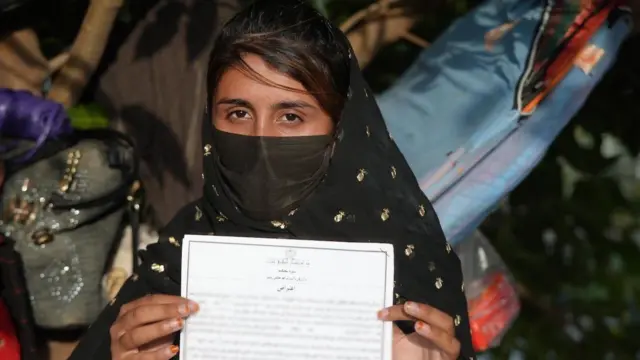RASC News Agency: Three years after the Taliban’s return to power, the profound alterations they have made to Afghanistan’s judicial system have deeply affected the lives of its citizens. The Taliban’s courts have annulled the divorces of numerous women, mandating their return to their former husbands. Sources reveal that the Taliban’s judiciary has implemented these changes according to its own strict interpretations. The judges, known for their uncompromising stances, are not only enforcing current laws but also delving into old cases, spending long hours to overturn judgments issued during the previous administration.
Furthermore, the Taliban are resolute in their mission to reassess and review past rulings, decrees, and judicial decisions. In this sweeping initiative, citizens are invited to request free reviews of old cases. The Taliban’s invitation has led to the reopening of tens of thousands of cases, now being re-examined under their interpretation of “Sharia” (Islamic law). This initiative has particularly impacted women, as some divorces granted by the previous government’s courts have been nullified, forcing these women back into unwanted marriages.
This action by the Taliban has compelled many to seek justice from their courts, only to be ensnared by their judicial system. The sweeping changes in Afghanistan’s judiciary also dictate that judges, when ruling on cases involving all citizens, including those of the Shia sect, must adhere solely to Hanafi jurisprudence (Sunni law). The Taliban’s Supreme Court has dismissed all previous judges and excluded women from the judiciary, asserting that “women lack the competence or capability to serve in the judicial sector… According to Sharia and Hanafi jurisprudence, only men are qualified to be judges. The judiciary requires individuals of exceptional talent.”
A source close to Bibi Nazdana, a woman forced to return to her husband, recalls: “When the Taliban regained power three years ago, Bibi Nazdana’s worst fears were realized. Ten days after their return, in the southern province of Uruzgan, Nazdana was in the kitchen with her mother when her father returned from afternoon prayers, visibly distressed. Curious, Nazdana stepped out of the kitchen and approached her father and brother to learn what had happened. She was informed that she had been summoned to court. She had divorced her husband and had no desire to see him again; she loathed him. However, when she was brought before the court, she was ordered to return to her former husband. She was forced to comply, with Taliban judges warning her that if she refused, she would either be forcibly returned or imprisoned. The Taliban declared, ‘Your husband is alive; return to him. Such defiance sows discord in society.'”
Her husband, who was affiliated with the Taliban, ultimately forced her to return to him.






